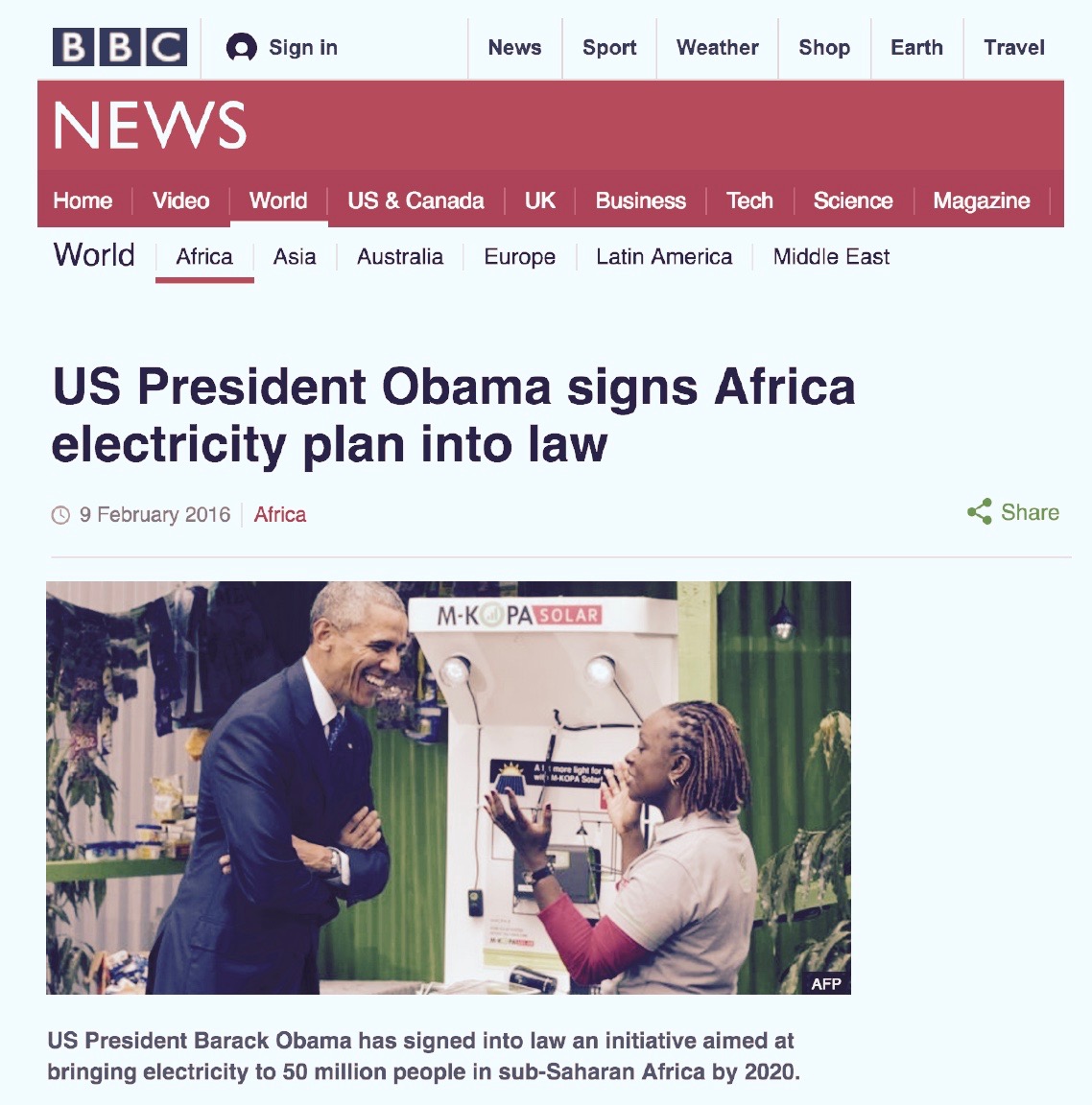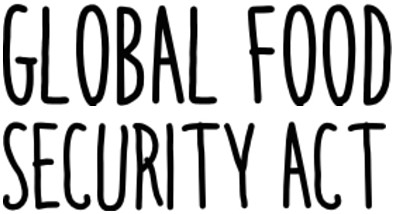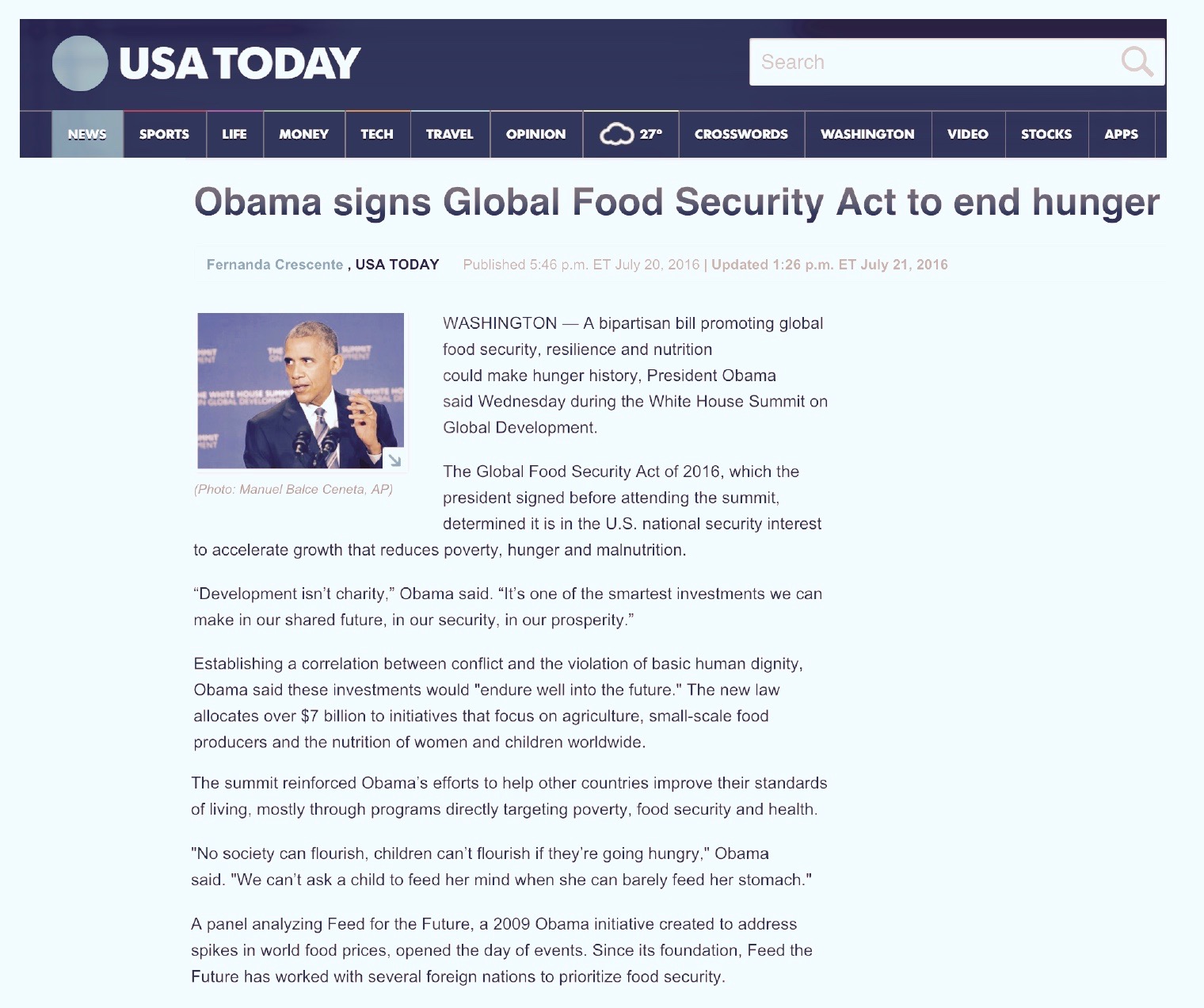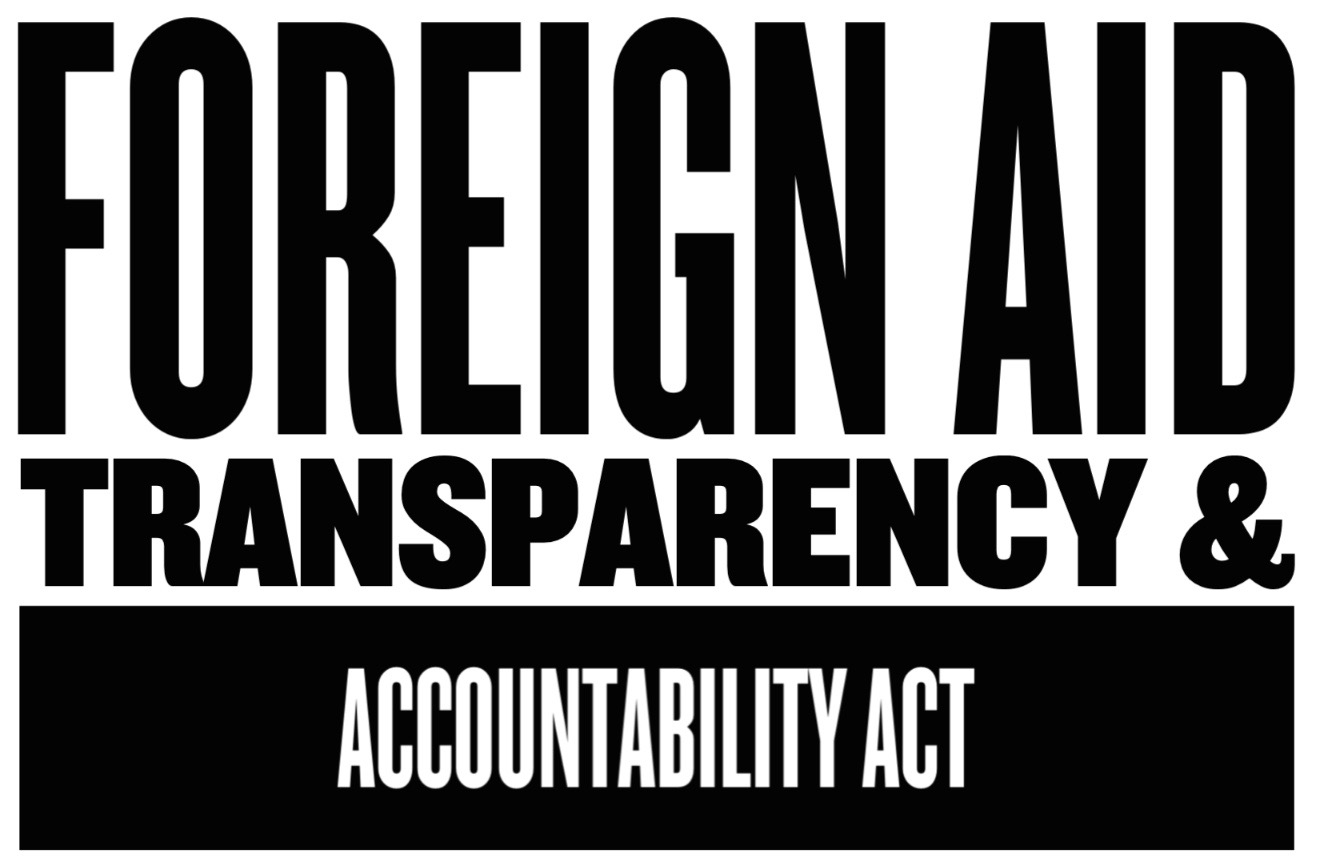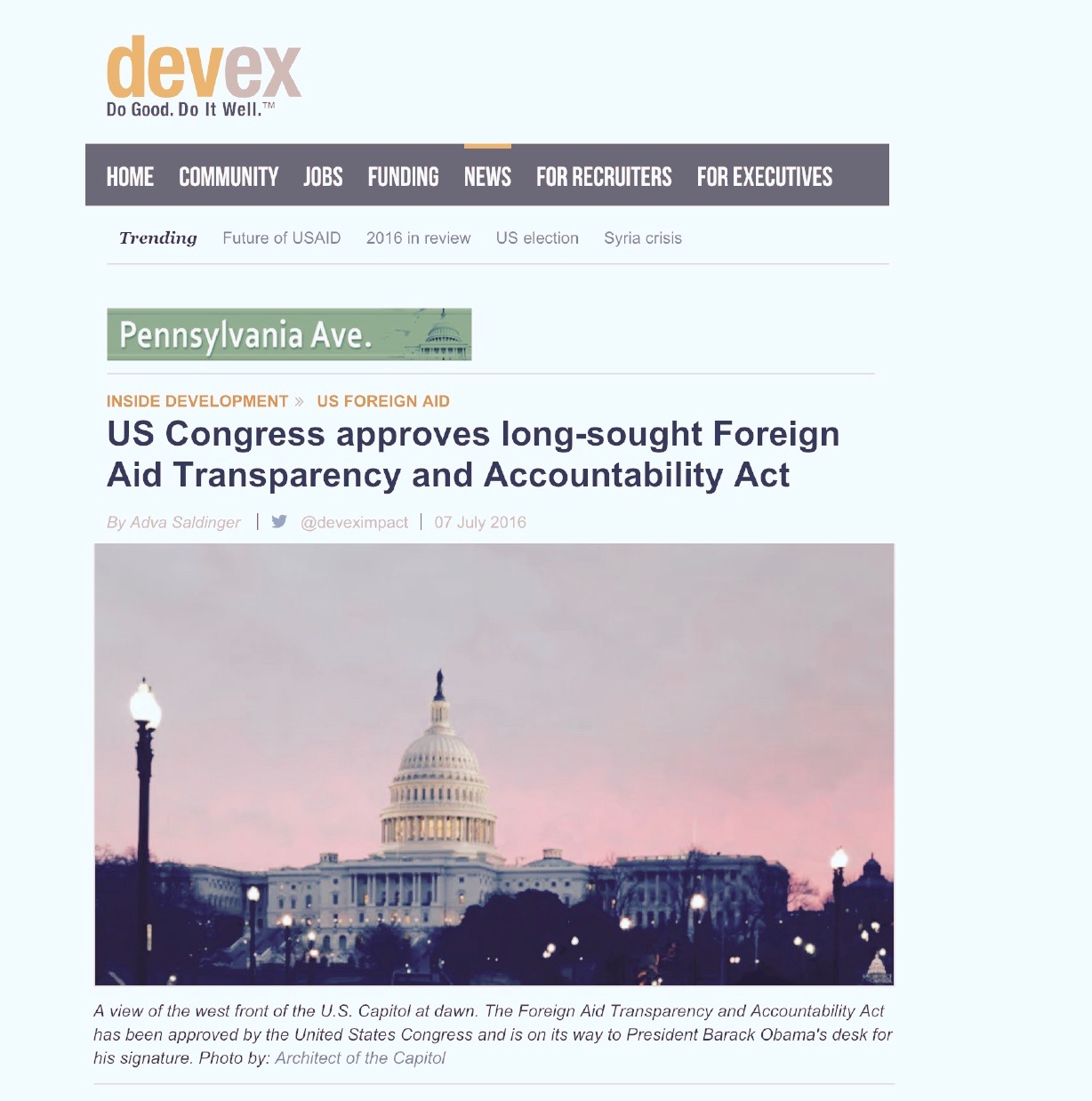Read Statement by the Governor of Pennsylvania on The Borgen Project’s work
Borgen Project supported legislation that passed in the 117th Congress (2021-22)
- Global Malnutrition Prevention and Treatment Act: The Global Malnutrition Prevention and Treatment Act authorizes USAID to advance programs that prevent and treat malnutrition around the world and maintain multi-sectoral nutrition programs. The bill increases program coverage for nutrient supplements, breastfeeding support, vitamin A supplementation, nutritious food products and other necessary evidence-based interventions to support vulnerable populations that are most at risk of severe malnutrition. The bill also aids partner governments and community health workers to develop and advance policies and programs to prevent and treat malnutrition worldwide. The Global Malnutrition Prevention and Treatment Act passed and became law on October 22, 2022.
- Global Food Security Reauthorization Act: The Global Food Security Reauthorization Act reauthorizes the Global Food Security Act and Feed the Future Initiative through Fiscal Year 2028. The Global Food Security Act is designed to eradicate hunger and malnutrition, especially among women and children, assist foreign countries in achieving long-term, sustainable agricultural development and ensure the effective use of taxpayer dollars to further these objectives. The Global Food Security Reauthorization Act passed and became law on December 23, 2022.
Political Access for the Poor
The Borgen Project was created to give the world’s poor an influential ally and that objective has been achieved beyond anything we could have imagined. In 2018, The Borgen Project also met with the majority of congressional members on key committees that shape U.S. foreign policy.
In 2022, The Borgen Project met with:
- 90% of U.S. Senate Appropriations Committee Members
- 91% of U.S. Senate Foreign Relations Committee Members
- 71% of U.S. House Foreign Affairs Committee Members
- 73% of U.S. House Appropriations Committee Members
The Scale of Impact at the Political Level
In January of 2007, The Borgen Project joined several U.S. leaders and organizations to help save $1 billion that Congress planned to cut from global health funding. The amount might seem minuscule compared to the $120 billion that was allocated to the Iraq War that year, but $1 billion in global health funding accomplished the following:
-
- Provided treatment for 1.5 million people with malaria.
- Provided 6.3 million people with bed nets to prevent malaria.
- Provided 3.7 million people HIV tests.
- Provided 110,000 people with AIDS treatment.
- Provided 800,000 people with treatment for TB.
“Having made tremendous strides on behalf of impoverished families throughout the world, I applaud The Borgen Project for its tireless commitment to ending global poverty. Through strategic advocacy and public education, you are helping to shape U.S. policy for the betterment of mankind. We are proud to be home to visionary groups like The Borgen Project. You represent the best of who we are as a state and as a people – insightful thinkers, proactive leaders and inspiring problem-solvers, who are committed to redefining what is possible and, ultimately, to changing the world.”
– Gov. Jay Inslee (WA)
Legislation that passed in the 116th Congress (2019-20)
- Global Child Thrive Act: The Global Child Thrive Act will strengthen U.S. leadership in advancing early childhood development in child-focused foreign assistance programs. The bill expands the number of agencies over which the Special Advisor on Children in Adversity (created under the Assistance for Orphans and Other Vulnerable Children in Developing Countries Act of 2005) has authority to coordinate with as it relates to the implementation of early childhood development policies including early learning and physical, cognitive, social and emotional development for children under the age of eight. The Global Child Thrive Act passed and became law on January 1, 2021.
- Malala Yousafzai Scholarship Act: The Malala Yousafzai Scholarship Act will help women and girls in Pakistan gain access to higher education. The bill guarantees that USAID awards at least 50% of its Merit and Needs-Based Scholarship Program to women through 2022. This legislation will also support initiatives of the Pakistani government that improve the quality and access to education. With a higher education enrollment rate of only 9% for Pakistani women, this bill will increase access to education for those who are disadvantaged and help lift families and communities out of poverty. The Malala Yousafzai Scholarship Act formally became law on January 13, 2021.
- Global Fragility Act: The Global Fragility Act establishes a whole-of-government approach to the prevention of violence by focusing on diplomatic, development and security efforts to target the root causes of violence. The bill introduced the Global Fragility Initiative in order to identify and prevent the main sources of fragility across the globe. The bill also authorizes the Complex Crises Fund to USAID to prevent and react to new crises. The Global Fragility Act was signed into law on December 20, 2019.
- End Neglected Tropical Diseases Act: Neglected tropical diseases (NTDs) cause the death of up to half a million people per year and are an immense economic burden for many nations. The End Neglected Tropical Diseases Act increases effective research and treatment of these diseases through interagency cooperation and public-private partnerships. The bill also encourages fellow G-20 nations to increase their role in the treatment and elimination of NTDs. The legislation was signed into law on December 20, 2019.
Legislation that Passed in the 115th Congress (2017-18)
- BUILD Act: The Better Utilization of Investments Leading to Development (BUILD) Act is the most ambitious reform to development financing in a generation. The bill created the first-ever U.S. International Development Financing Corporation (IDFC), which will help entrepreneurs secure financing and spark economic growth in developing countries. The BUILD Act was signed into law on October 3, 2018.
- AGOA & MCA Modernization Act: The bill builds on the success of both the Millennium Challenge Corporation (MCC) and the African Growth and Opportunity Act (AGOA) programs. The bill gives the MCC the authority to develop a second concurrent compact with countries, which allows them to address deficiencies in their communications, transportation, and energy networks. The bill also increases the success of the AGOA program, which builds trade partnerships between sub-Saharan African countries and the U.S. by requiring the State Department to better promote the program with governments and businesses. The bill passed unanimously and was signed into law on April 23, 2018.
- PEPFAR Extension Act: The President’s Emergency Plan for AIDS Relief (PEPFAR) was launched in 2003 by President Bush to address the global AIDS crisis. Since the program launched, the U.S. has invested more than $70 billion in prevention, testing, and treatment programs reaching millions around the world. In 2018, the U.S. Congress recognized the success and importance of PEPFAR by extending it for an additional five years. The PEPFAR Extension Act passed unanimously and was signed into law on December 11, 2018.
- Global Health Innovation Act: The bill requires the administrator of USAID to submit an annual report to Congress on the “development and use of global health innovations in the programs, projects and activities of the Agency,” thus ensuring that USAID continues to prioritize scaling up successes in its global health programs. The bill passed overwhelmingly and was signed into law on January 3, 2019.
- Women’s Entrepreneurship and Economic Empowerment Act: Gender inequality is a key factor in women making up the majority of the world’s poor. The Women’s Entrepreneurship and Economic Empowerment Act makes it U.S. policy to reduce gender disparities related to economic participation and opportunity. This will “empower women with the tools to support their families and add value to their communities’ economy, ensuring their nations will be stronger, safer, and more peaceful,” said the bill’s original co-sponsor Rep. Ed Royce (R-CA). The bill passed overwhelmingly and was signed into law on January 9, 2019.
- Protecting Girls’ Access to Education in Vulnerable Settings Act: The bill was signed into law on January 14, 2019. This critical legislation increases transparency, improves coordination and intensifies the impact of efforts to support access to primary and secondary education for displaced people, with a specific focus on the educational needs of women and girls.
Legislation that Passed in the 114th Congress (2015-16)
Education for All
On Sep. 8, 2017, the Reinforcing Education Accountability in Development (READ) Act was signed into law. The Borgen Project held 138 meetings on the Hill and mobilized more than 9,000 emails from constituents to their Members of Congress in support of the READ Act and the previous version of the legislation (the Education for All Act).
As a result, U.S. foreign policy will emphasize the value of education for economic growth and social mobility as it promotes educational programs around the world. Partnerships for educational development will have greater oversight and coordination and a renewed focus on retention. Education can reduce poverty, increase incomes and economic growth, foster peace, reduce fertility rates, child marriage and maternal death, promote gender equality and save lives. Here in the U.S., a world that is more educated means one that is safer from disease and extremism and one in which news doors of trade and collaboration will open.
It is projected that the READ Act will significantly improve the lives of more than 263 million school-aged young people. Girls and boys who learn to read, write and count — as well as pursue additional forms of education — will improve the world. The third section of the bill highlights the critical role of increased educational accessibility specifically for girls and women.
Food Aid Reform
Generally, when wealthy nations provide emergency food aid in situations of war, famine and disaster, they purchase the food as close to the crisis as possible. This allows nations to quickly and cost-effectively assist as many people as possible. In the U.S., however, our laws require that the food come from the U.S. and 50% of it must be shipped on U.S. flagged cargo ships. This approach does not factor in the critical component of time; in fact it can take up to three months to reach people who are in dire need. The high cost of shipping food from the U.S. also means that a large percentage of food aid funding goes toward shipping costs. With 40% of U.S. food aid funding going to the shipping industry, our taxpayer dollars are wasted at the expense of millions of starving men, women and children. The Borgen Project is part of a coalition of nonprofit organizations advocating for critical reforms that will allow the U.S. to assist millions more without requiring additional funding.
- Cargo Preference: In the spring of 2014, the U.S. House of Representatives passed a provision in the Coast Guard authorization bill, for which the maritime industry lobbied, that would increase the cargo preference from 50% to 75%. This costly provision would have resulted in two million fewer people, per year, receiving life-saving assistance from the U.S. The Borgen Project went to Capitol Hill to raise awareness on this harmful provision that was slipped into the approved House bill. During the Capitol Hill meetings, The Borgen Project brought attention to the issue and met with 26 Senate offices and 17 House offices. Among these offices, were the offices of the Chair and Ranking Member of the Coast Guard Subcommittee, which oversees this issue. The potentially devastating measure was defeated in the Senate.
- 2014 Johanns-Leahy Amendment Food for Peace 202(e) – On May 8, 2014, the Senate Appropriations Committee adopted an amendment to include an additional $35 million cash flexibility in the Food for Peace Title II program. The Borgen Project was on Capitol Hill meeting with congressional offices the week of the vote. The amendment narrowly passed by two votes. Of those who voted yes, 9 out of 16 had met with The Borgen Project in the 48 hours leading up to the vote. The amendment was projected to help an additional 200,000 hungry and malnourished people. After the vote, Senator Patrick Leahy gave a nod of appreciation to The Borgen Project via Twitter. Unfortunately, the amendment wasn’t included in the final budget.

Power for Africa
On May 8, 2014 the Electrify Africa Act passed in the U.S. House of Representatives by a vote of 297-117. In sub-Saharan Africa, 589 million people – 68% of the population – do not have access to electricity. The purpose of the legislation is to provide first-time electricity to 50 million people by 2020.
Of the Congressional Leaders who Cosponsored the Legislation…
- 25 Cosponsored after meeting with The Borgen Project.
- 13 Congressional leaders cosponsored after receiving emails from Borgen Project constituents in their district.
Of the Congressional leaders Voting Yes for the Legislation…
- 75 had met with The Borgen Project.
- 78 had received emails from Borgen Project constituents in their district.
In 2016, the Electrify Africa Act passed Congress and was signed into law by President Barack Obama. Since its enactment, the Electrify Africa Act is a great success. As of January 2019, 58,552,435 beneficiaries have gained access to electricity, leading to the development of local economies and making an impact on global poverty reduction. Read more about the successes of the Electrify Africa Act here.
Access to Clean Water and Sanitation
After six years of advocating for the Water for the World Act, in December of 2014 the legislation passed Congress and was signed into law by President Barack Obama. From 2009-2014, The Borgen Project built support for the Water for the World Act and held 410 meetings with congressional offices.The legislation builds on the success of the Water for the Poor Act of 2005, which has already provided millions of people with first-time access to clean drinking water and clean sanitation resources.In 2009, The Borgen Project began advocating for the United States to develop a coordinated strategy to improve conditions for those living without access to clean water and sanitation. In the 111th and 112th Congress, The Borgen Project met directly with hundreds of Congressional offices and mobilized thousands of Americans to contact their leaders in support of a clean water strategy. The focus of the advocacy campaign was the Water for the World Act, a bill that called for a White House water strategy and sought to provide 100 million impoverished people first time access to clean water. In June of 2012, the Water for the World Act (S. 624) passed in the Senate, before being held up in the House of Representatives Foreign Affairs Committee. The setback proved temporary, and in May of 2013, USAID Administrator Rajiv Shav and Water for the World Act sponsors Sen. Richard Durbin and Congressman Earl Blumenauer announced the first ever White House strategy for addressing the lack of access to clean water and sanitation. In August of 2013, a new version of the Water for the World Act was introduced and The Borgen Project is continuing to build support for it.
Political Accountability
For years, individual members of Congress have escaped public scrutiny while blocking legislation that if not for their actions, would have improved millions of lives. The Borgen Project is shining a spotlight on leaders who obstruct progress in downsizing poverty. For example, in 2010 The Borgen Project contributed to the passing of the Water for the World Act in the U.S. Senate. The bi-partisan legislation would have provided 100 million people with access to clean, drinkable water. However, in the House of Representatives, the ranking member of the House Foreign Affairs Committee utilized her position to prevent the Water for the World Act from moving forward in the House. Her actions received zero media coverage and few voters in her district were aware of it until The Borgen Project published an Op Ed in The Huffington Post spotlighting her actions.
“The Borgen Project’s reputation for smart advocacy was confirmed to me when a senior Congressional staffer told me what an impression the organization had made on him. Clearly, The Borgen Project is an important emerging voice and a welcomed ally in the fight against global poverty.”
– Adam Olson, Oxfam America
U.N. Millennium Development Goals
The Borgen Project elevated the profile of global poverty and the U.N. Millennium Development Goals on Capitol Hill. In 2006, when The Borgen Project began meeting congressional leaders and staffers, few were aware that the U.S. and 190 other countries had committed to the Millennium Development Goals, a time frame for cutting global poverty in half. Through high-level meetings and targeted online buzz campaigns, The Borgen Project has drastically increased awareness of the Millennium Development Goals.
The Borgen Project first began Millennium Development Goals meetings with Barack Obama’s staff when he served in the U.S. Senate. Prior to announcing his run for President, The Borgen Project urged Obama to make addressing global poverty and achieving the Millennium Development Goals part of his campaign platform and foreign policy agenda. As both a candidate and as a President, Obama has incorporated the Millennium Developments Goals and cutting global poverty in half into his foreign policy strategy.
2009 White House Foreign Policy Statement:
“Fight Global Poverty: Obama and Biden will embrace the Millennium Development Goal of cutting extreme poverty around the world in half by 2015, and they will double our foreign policy assistance to achieve that goal. This will help the world’s weakest states build healthy and educated communities, reduce poverty, develop markets, and generate wealth.”
“The Borgen Project has quickly become an influential ally for the world’s poor and given a voice to those born into extreme poverty. As a member of The Borgen Project’s Board of Directors, I’m honored to be part of this innovative organization. I congratulate the thousands of volunteers who’ve joined forces in building The Borgen Project into what it is today.”
– Congressman Adam Smith
Feeding the World
- One in nine people are undernourished, which equates to 12.9% of the population of the developing world
- Poor nutrition causes almost half of the deaths of children under five
- 40% of the world is employed in agriculture
- Access to more competitive resources, such as loans and electricity, will allow small farmers to achieve a more sustainable source of food
Global Food Security
The Problem:
- Between 2007 and 2008, global food prices increased by 43%, pushing 100 million people into severe poverty. This came after years of world hunger reduction.
- Approximately 1 billion people live on less than $1.00 per day. Over 162 million survive on less than $0.50 per day. Increasing food prices has the greatest effect on poor countries, where people spend 60 percent or more of their income on food.
- In recent years, only 4% of foreign assistance from the world’s rich nations has been given to poor nations for agricultural development. Most of the food aid goes towards food donations, but this does not develop the host country’s capacity to produce its own food to feed its citizens. In the late 1970’s, it was nearly 18% when the West helped create the Green Revolution that assisted Asian farmers in improving the food supply. The resulting increase in food production raised the incomes for millions of poor farmers and decreased food prices. In China alone, hunger was cut in half between 1970 and 1990.
Impact: In 2009, The Borgen Project met with over 100 congressional offices while building support for Global Food Security initiatives on Capitol Hill. The Borgen Project also reached over 100,000 people through public awareness campaigns and helped mobilize thousands of people to contact their congressional leaders in support of legislation addressing global food security.
Outcome: In 2010, with momentum for Global Food Security on Capitol Hill, the Obama Administration established the Feed the Future program and allocated $3.5 billion in the budget proposal to help poor nations feed themselves. This program would provide the resources for 60 priority countries to develop the strategies to become self-sufficient and prevent future food crises. The Obama Administration also utilized the United States role as the world’s agenda-setter to mobilize G20 nations to pledge a total of $22 billion.
Projected impact of the $22 billion in Food Security funding:
- Increased income for at least 40 million people on less than $2.00 per day.
- Research on agricultural strategies to increase food production and famine prevention
- 25 million children will receive nutrition interventions that prevent child mortality. These investments are projected to reduce the number of stunted children by 10 million and the number of underweight children by 4 million.
- Millions of poor families will benefit from lowered food prices.


